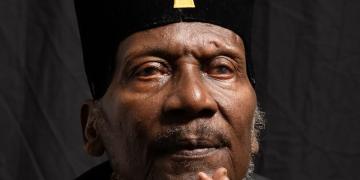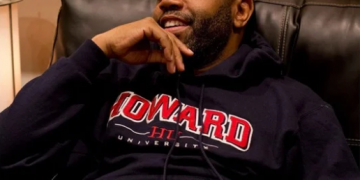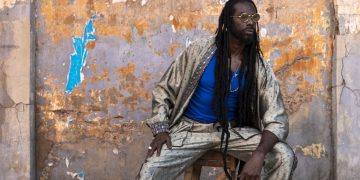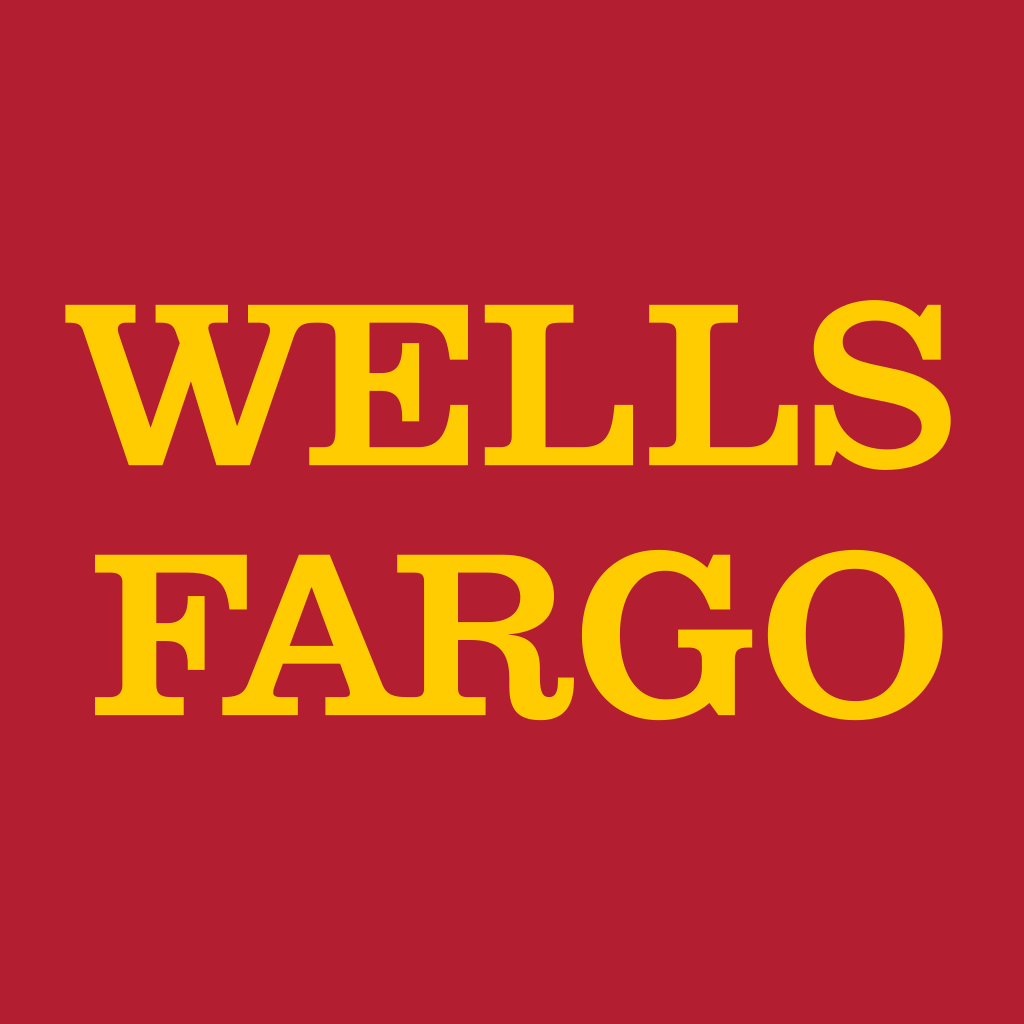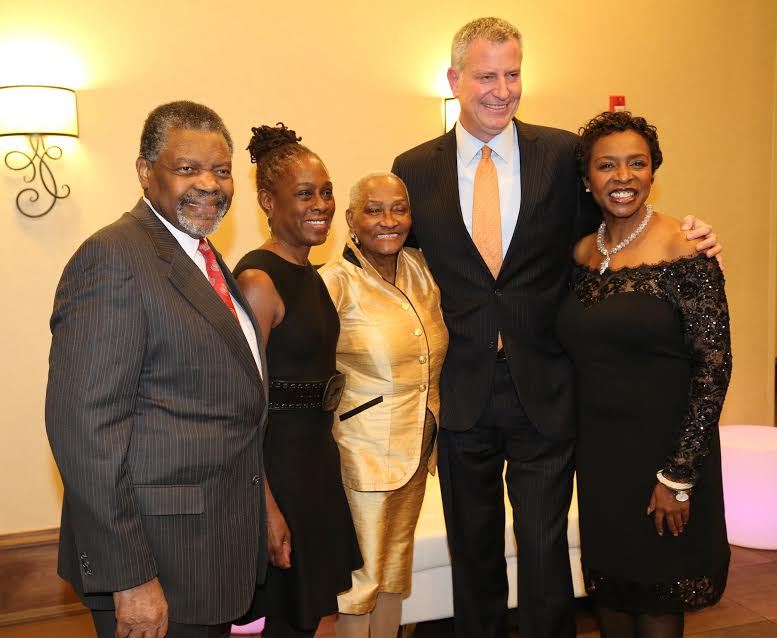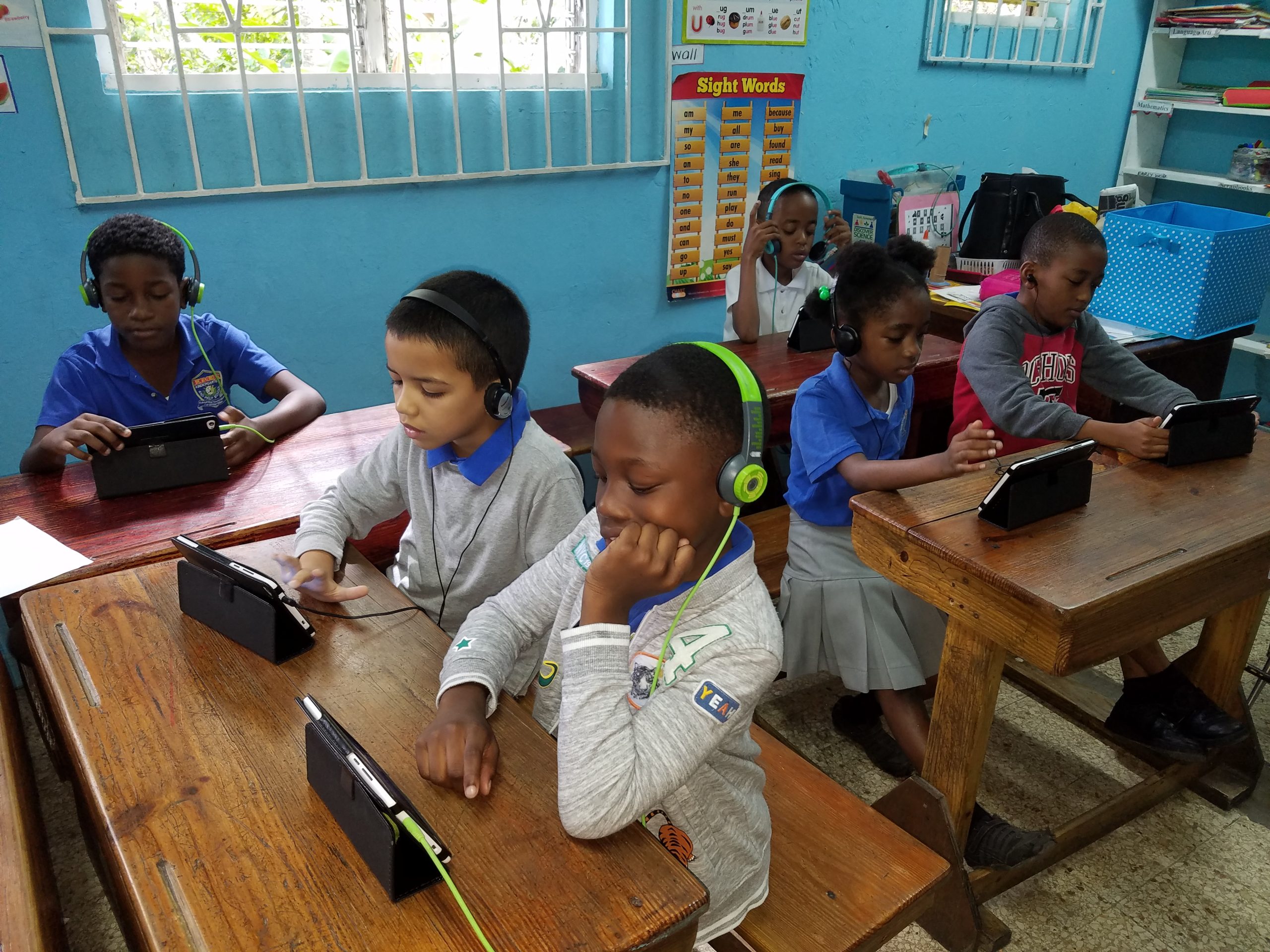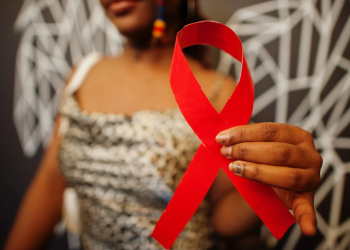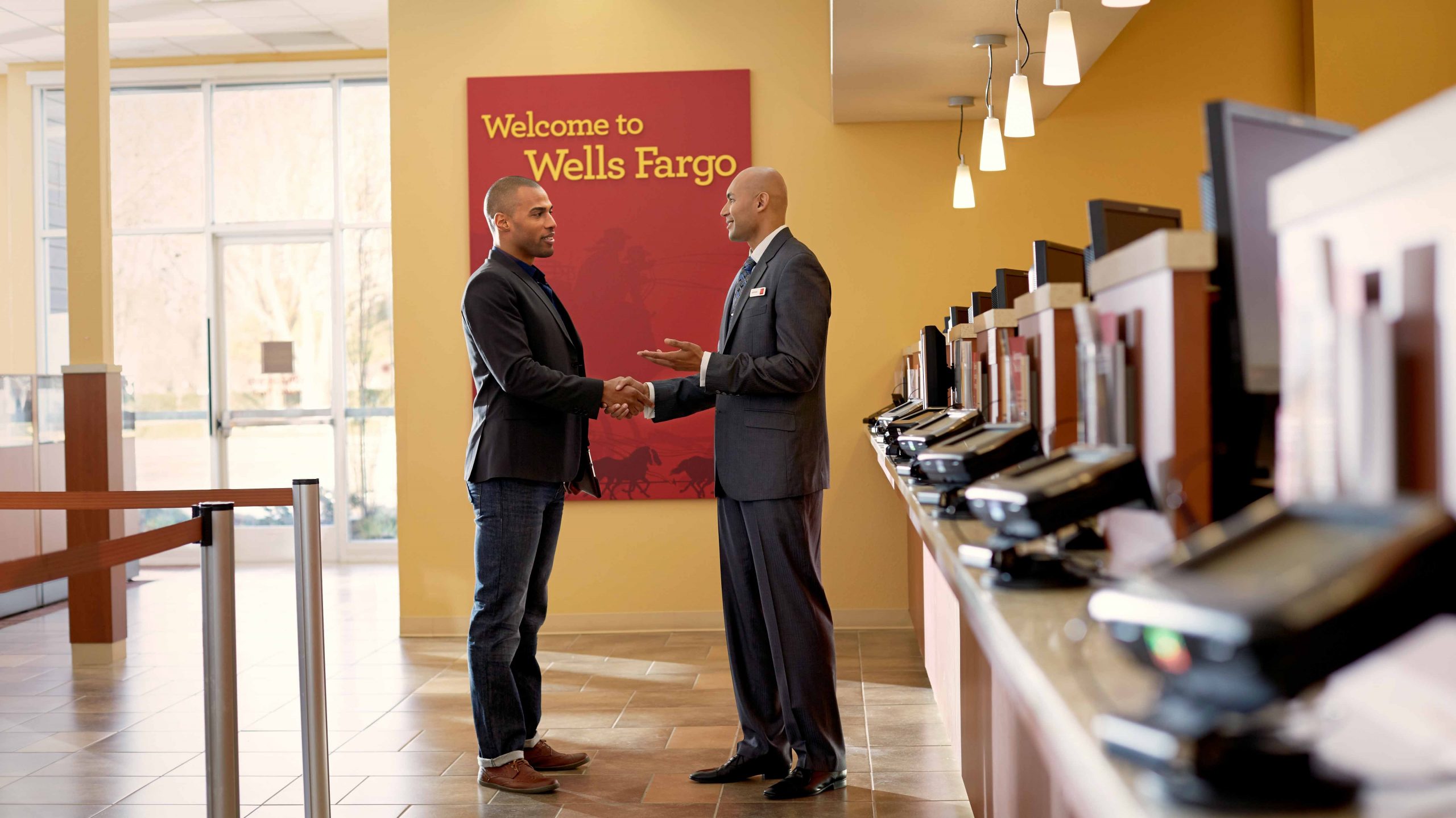
New initiative will help unbanked Black and African Americans, Hispanics, and Native Americans have easier access to low-cost banking
Wells Fargo recently announced the Banking Inclusion Initiative, a 10-year commitment to help unbanked individuals gain access to affordable, mainstream, digitally-enabled transactional accounts – a meaningful entry point to fully participating in the economy and achieving financial stability. The initiative will focus on reaching unbanked communities and, in particular, helping remove barriers to financial inclusion for Black and African American, Hispanic, and Native American/Alaska Native families, which account for more than half of America’s 7 million unbanked households1. It also will assist those who are underbanked or underserved – individuals who may have a bank account yet continue to use high cost, non-bank services and have similar needs.
Wells Fargo will bring together multiple national and community stakeholders to roll out the broad-based initiative that is designed to increase access to affordable products, digital banking and financial guidance within unbanked communities. Through this initiative, Wells Fargo also will collaborate with partners to explore solutions to the credit challenges facing unbanked individuals. This year, the bank will work with partners to set and begin measuring a 10-year goal for reducing the number of people who are unbanked, with milestones along the way.
According to 2019 FDIC data1, 12.2 percent of Hispanic households, 13.8 percent of Black households, and 16.3 percent of American Indian/Alaska Native households in the U.S. don’t have access to a mainstream checking account – compared with 2.5 percent of White and 1.7 percent of Asian households. The FDIC also reports that while these figures have been trending downward, the number of unbanked households will likely increase in the aftermath of the ongoing Covid-19 pandemic.
“We recognize the high number of unbanked households is a complex and long-standing issue that will require gathering the best minds, ideas, products and educational resources from across our communities to bring about change,” said CEO Charlie Scharf. “Through our Initiative, we will organize our resources under one umbrella and work with a broad and diverse group of stakeholders on a sustained multi-year effort to accelerate financial inclusion in the U.S.”
The commitment will be organized around three areas:
- Access to Affordable Products and Digital Solutions
- Wells Fargo will deepen its existing relationships with Black-owned Minority Depository Institutions (MDIs) to support their work in the communities they serve, including outreach efforts and providing the option for their customers to withdraw cash from Wells Fargo’s ATMs and incur no Wells Fargo fees. In addition, Wells Fargo is offering access to a dedicated relationship team that will work with each MDI on financial, technological and product development strategies to help strengthen and grow their institutions.
- In recognition that unbanked and underbanked individuals need access to short-term credit, Wells Fargo will increase funding and support to expand the Credit Builders Alliance (CBA) low-cost, credit-building consumer loan program. The organization’s CBA Fund will provide patient loan capital, capacity-building grants and technical assistance to their nonprofit lender members, enabling low-cost consumer loans for low- to moderate-income (LMI) individuals to meet short term cash needs and establish or improve their credit scores.
- Wells Fargo will increase awareness and outreach about low-cost, no overdraft fee accounts, such as Wells Fargo’s Bank On-certified Clear Access Banking. Wells Fargo introduced Clear Access Banking in 2020, offering an affordable account designed for those who are new to banking or have encountered past challenges opening or keeping a bank account. The account is certified by the Cities for Financial Empowerment (CFE) Fund for meeting Bank On National Account Standards for safe and appropriate financial products to help people enter or re-enter the mainstream financial system, and it gives full access to Wells Fargo’s mobile app, and nationwide branch and ATM network.
- Wells Fargo will broaden its collaboration with CFE Fund and local Bank On coalitions to pilot new strategies and approaches that help overcome barriers to banking access in several markets with high concentrations of unbanked households. The program will focus on helping those who are unbanked navigate the financial system, develop an easier, more seamless path for them to open a Bank On-certified account and access services they need within mainstream banking. It will be used to identify best practices that can be applied on a national scale.
- Wells Fargo will work closely with Fintechs that are deeply committed to helping underserved communities. For instance, Wells Fargo is among the investors in Greenwood, a digital platform for Black and Latino individuals and business owners. The bank also has started a collaboration to help the Fintech MoCaFi provide banking to unbanked individuals, starting with offering MoCaFi customers the ability to use their MoCaFi debit card at Wells Fargo ATMs without incurring fees from Wells Fargo.
- Financial Education and Advice
- Teaming with Operation HOPE, Wells Fargo will support the launch of HOPE Inside centers within diverse and LMI neighborhoods, which is designed to foster inclusion through financial education workshops and free one-on-one coaching to help community members take control of their finances and build their credit scores.
“I applaud Wells Fargo for joining forces with us to deliver our best-in-class HOPE Inside work in markets across the country that will strengthen more communities through financial empowerment,” said John Hope Bryant, Chairman and CEO, Operation HOPE, Inc. “Supporting this game changing, transformational work at Operation HOPE will support underserved communities in very meaningful ways. For me, important partnerships such as this represent a new era of necessary corporate and private sector leadership in America, focused on sustainable uplift, or social justice through an economic lens.”
- Wells Fargo is working with the Historically Black Colleges and Universities (HBCUs) Community Development Action Coalition to launch Our Money Matters, a comprehensive financial wellness initiative for college students of color, who disproportionally face greater financial challenges and college debt. The initiative aims to equip students with much needed financial capability skills and access to support services. Over the next 3 years, the program will expand to 25 HBCUs and Minority Serving Institutions.
- With more than 25 percent of its branches in LMI community census tracts, Wells Fargo will introduce a new program within LMI neighborhood branches that will be designed around the needs of the diverse communities it serves. The branches will feature redesigned spaces created to deliver one-on-one consultations, improve digital access and offer financial health seminars, and through these efforts, will help build trust. Wells Fargo will select a set of pilot locations to introduce the program, with a plan to expand to 100 LMI neighborhood branches with a high concentration of unbanked individuals.
- Launching National Advisory Task Force
- Recognizing the difficulty of addressing the unbanked issue in the U.S., Wells Fargo will establish and lead a broad coalition to help with this multi-year commitment. Wells Fargo is forming a National Unbanked Advisory Task Force that will work with the bank in developing solutions to bring more people into the banking system from underserved communities, while also providing feedback on the initiatives that will be implemented and helping determine the best ways to measure success. The task force will feature representatives from leading organizations, including LULAC (League of United Latin American Citizens), NAACP (National Association for the Advancement of Colored People), National Bankers Association, NCAI (National Congress of American Indians), UnidosUS, National Urban League, and Mississippi-based Hope Enterprise Corporation.
“There is a need to develop creative ideas and solutions and to do things differently to serve the needs of tribal governments and Native American households that are unbanked. I look forward to actions that are focused on reaching unbanked communities and to removing barriers to financial inclusion and economic advancement,” said Danté Desiderio, CEO, National Congress of American Indians.
“The NAACP is pleased to partner with Wells Fargo in support of their commitment to helping more communities of color gain access to affordable banking services,” said Derrick Johnson, President & CEO, NAACP. “We know that millions within communities of color operate in unbanked households, limiting their ability to truly take advantage of opportunities on behalf of their families. The Banking Inclusion Initiative is a necessary step to ensuring that our communities have access to fully participate in developing economic and financial stability. We are excited about what untapped possibilities can be birthed for the future of these individuals, their families, and their communities.”
“Access to low-cost financial services is an ongoing challenge that has grown even more important during the pandemic and we commend Wells Fargo for taking the lead forming the National Unbanked Advisory Task Force, a significant action to leverage the expertise and insights of leaders across our diverse communities,” said Janet Murguia, CEO, UnidosUS. “This strong coalition of Latino, Black, and Indigenous organizations will offer valuable advice and guidance to Wells Fargo in reducing the number of unbanked people in the communities we serve and helping even more people on the path to achieve financial stability and security for their families.”
“With branches in more communities than any other financial institution, we believe we have a responsibility to do even more to help address this issue and the pandemic has increased the urgency,” said Mary Mack, CEO of Consumer and Small Business Banking at Wells Fargo. “It is why we’re launching this comprehensive initiative. It is our hope, working closely with our partners, we will be able to make a difference over time in addressing such a critical problem for our society.”

